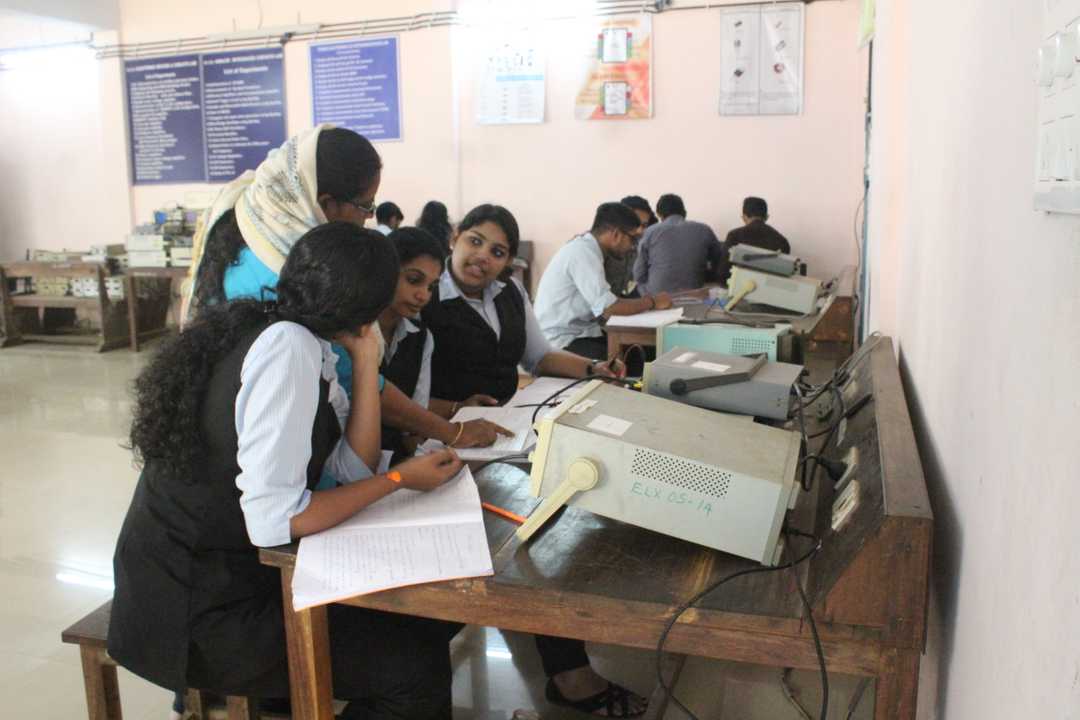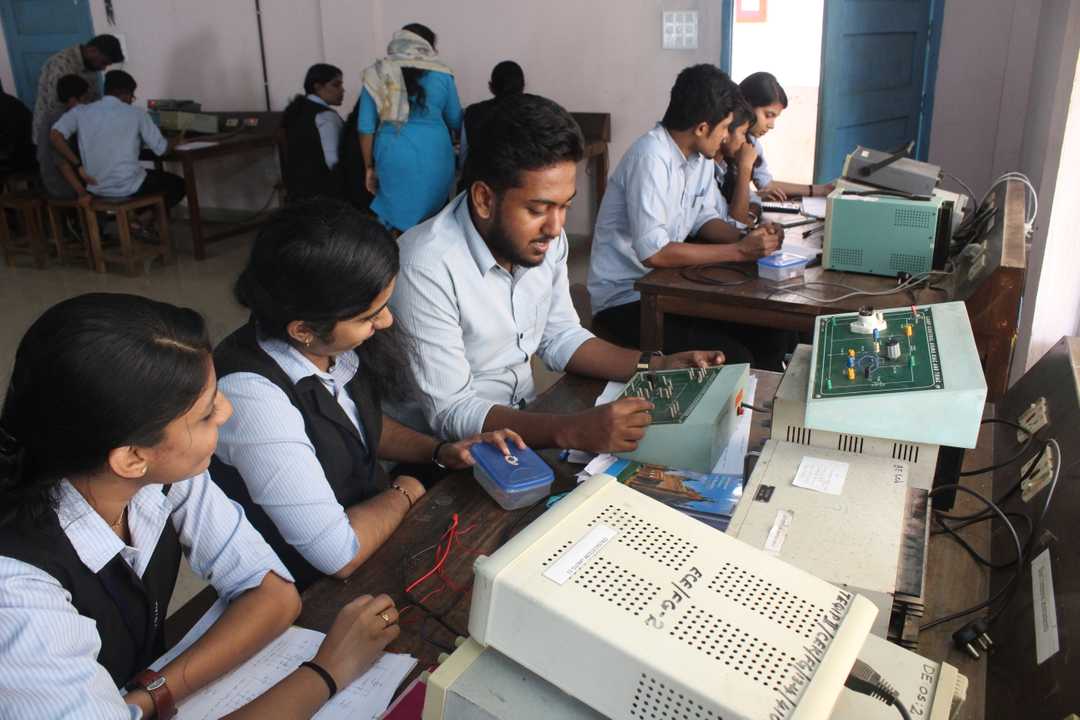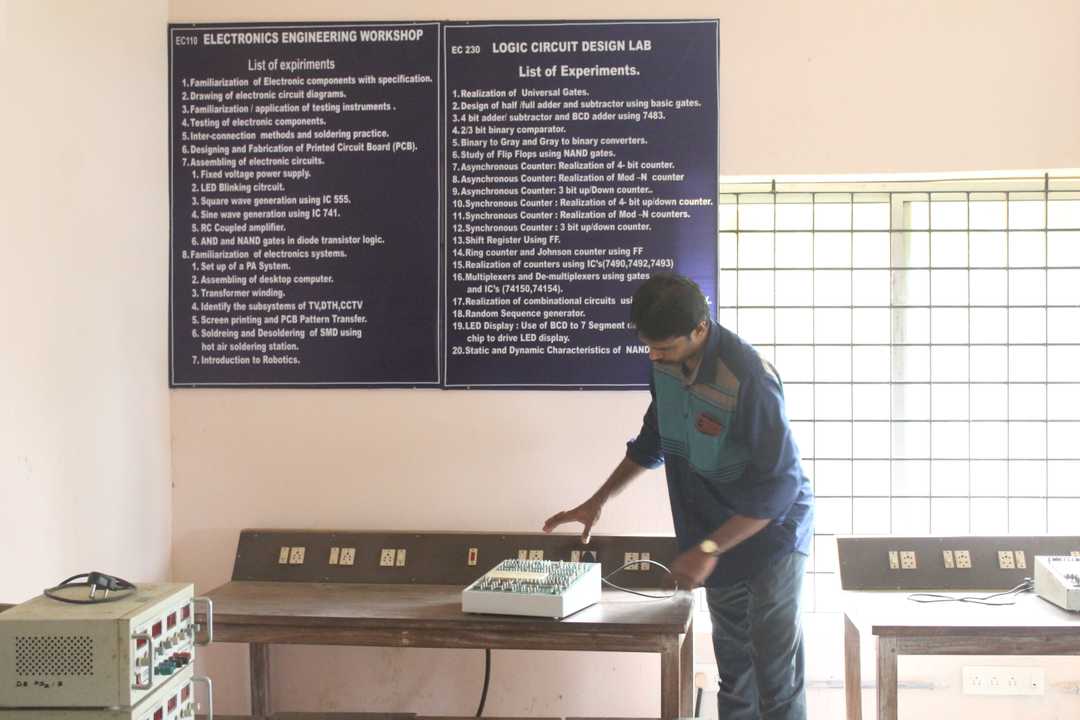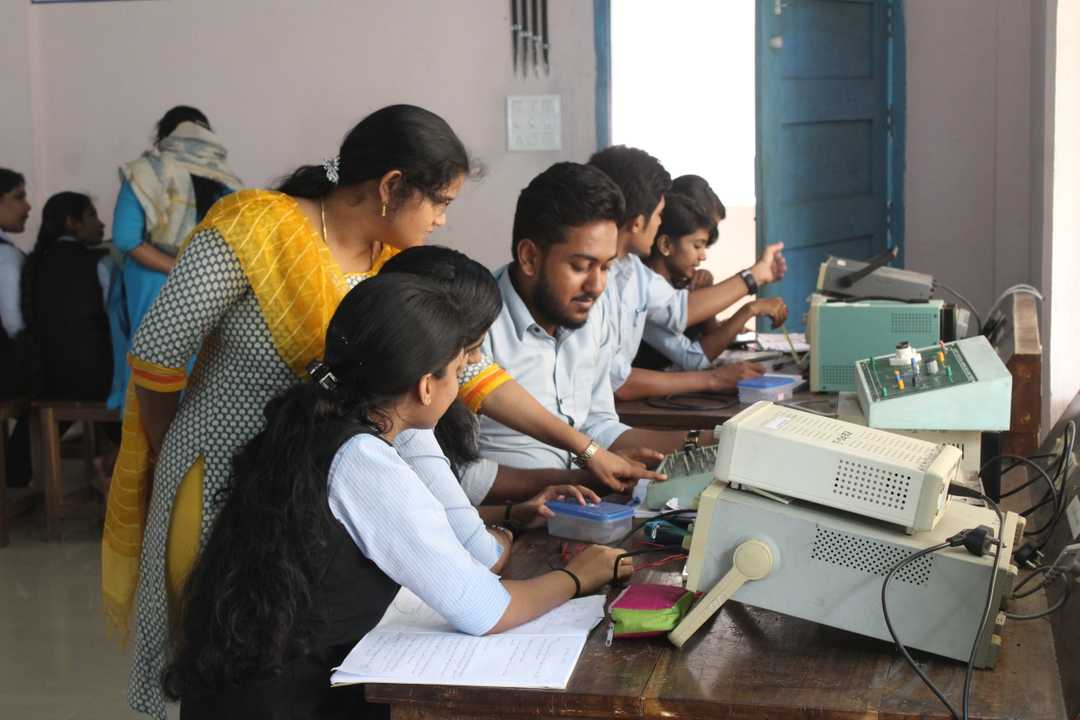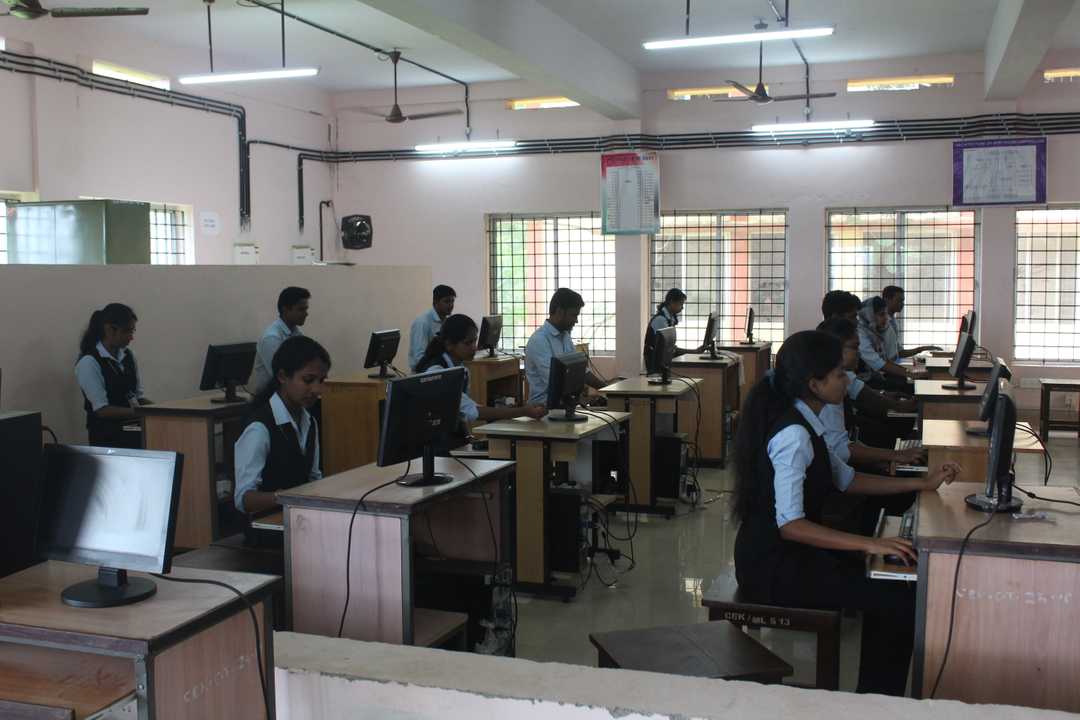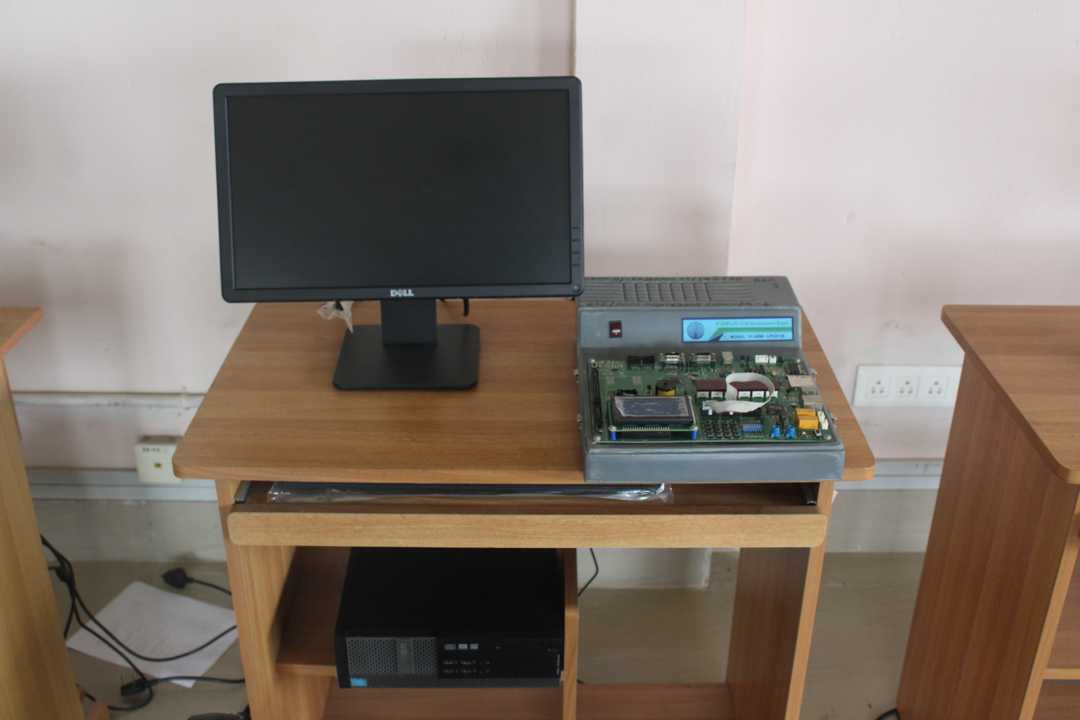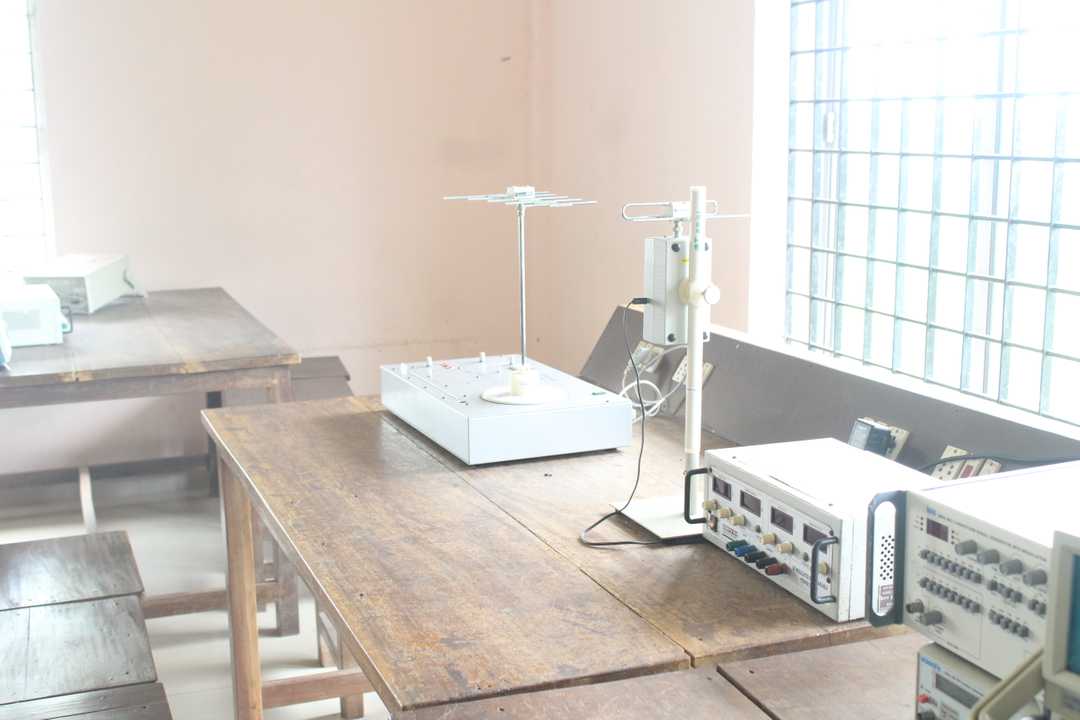Electronics and Communication Engineering
The Department was established in 2000, and now has become a full-fledged department with advanced laboratory facilities to train the students to meet the current needs of the fast changing industrial scenario.
Seats Available : 60 + 3 *
Vision
To be recognized as a centre of learning and research in the field of Electronics and Communication Engineering that produce high calibre engineers for the benefit of society.
Mission
To achieve academic excellence in students of all ability levels through periodically updated curriculum, collaborative ventures with industries and effective teaching learning process with an ambience of wholesome Knowledge, Humanity, Creativity & Innovation.
Head of the Department
Program Specific Outcomes (PSO)
- PSO1- Apply the fundamental knowledge of communication, signal processing and semiconductor technology in the analysis and design of various electronic systems.
- PSO2- Comprehend the technological advancements in the usage of modern tools to analyze and design electronic engineering systems.
- PSO3- Develop the skills required to apply the gathered knowledge in related fields to adapt to the dynamic trends in the field of Engineering and Technology.
Program Educational Objectives
- Graduates possess essential professional skills in electronics and communication engineering fields for making reliable high end solutions for real life problems.
- Graduates will engage and succeed in their careers through team work, ethical behavior and effective communication.
- Graduates will engage in lifelong learning along with professional development and practical training.
Program Outcomes
- Engineering knowledge: Apply the knowledge of mathematics, science, engineering fundamentals, and an engineering specialization to the solution of complex engineering problems.
- Problem analysis: Identify, formulate, review research literature, and analyse complex engineering problems reaching substantiated conclusions using first principles of mathematics, natural sciences, and engineering sciences.
- Design/development of solutions: Design solutions for complex engineering problems and design system components or processes that meet the specified needs with appropriate consideration for the public health and safety, and the cultural, societal, and environmental considerations.
- Conduct investigations of complex problems: Use research-based knowledge and research methods including design of experiments, analysis and interpretation of data, and synthesis of the information to provide valid conclusions.
- Modern tool usage: Create, select, and apply appropriate techniques, resources, and modern engineering and IT tools including prediction and modeling to complex engineering activities with an understanding of the limitations.
- The engineer and society: Apply reasoning informed by the contextual knowledge to assess societal, health, safety, legal and cultural issues and the consequent responsibilities relevant to the professional engineering practice
- Environment and sustainability: Understand the impact of the professional engineering solutions in societal and environmental contexts, and demonstrate the knowledge of, and need for sustainable development.
- Ethics: Apply ethical principles and commit to professional ethics and responsibilities and norms of the engineering practice
- Individual and team work: Function effectively as an individual, and as a member or leader in diverse teams, and in multidisciplinary settings.
- Communication: Communicate effectively on complex engineering activities with the engineering community and with society at large, such as, being able to comprehend and write effective reports and design documentation, make effective presentations, and give and receive clear instructions.
- Project management and finance: Demonstrate knowledge and understanding of the engineering and management principles and apply these to one’s own work, as a member and leader in a team, to manage projects and in multidisciplinary environments.
- Life-long learning: Recognize the need for, and have the preparation and ability to engage in independent and life-long learning in the broadest context of technological change.
Lab details
This lab is well equipped for study of solid-state devices viz. Diode, Bipolar junction Transistors, Field effect transistors resistors and capacitors. This lab is intended for the 3rd semester EC,EI and CS students, preparing them for a smooth take off to the dazzling world of Electronics.
Designing Amplifiers, power supplies, signal generators and signal conditioner circuits, will be just child play for the fourth semester students, after they complete this course. We have a well-equipped lab set up for experiments in electronic circuit designing.You will find all sorts of equipments and devices (CROs, Function generators, power supplies, trainer kits) for the development of the future technocrats.
In this era of every thing “Going Digital”, we are committed to make our students real masters in digital designing. The digital electronics lab has all the facilities to experiment with SSI and MSI chips (GATES, FLIPFLOPS, Counters, MUX/DEMUX, RAM and ROMS). We give training in designing and developing digital circuits, experimenting using Digital Trainer Kits.
This lab is set up for imparting training in various various microprocessors. The lab experiments include microprocessor system familiarization, assembly language programming, interfacing with ADC/DACs, relay switches LEDs, 8085 and 8086 programming kits and interfacing experiments like interrupt controller, DMA interface, CRT, centronics port, serial port etc.
Our students are trained in developing 8051 and PIC micro controller based systems. We have the facility to program devices including Most E (E) PROM, flash, GAL, EP3KK/6kk, PEEL, PLACE, B PAL, PLC’s PLs, PLH, PLC, ATV, ATH, CPL, 85 cck/5cck/DS 12 kk, Micro controllers 87 kk/9kk, D75 pkk, D78pkk, pp75 kk, HD 63 kkk/PIC 16kkk/17kk/cop87kk and PSD 8kk.

